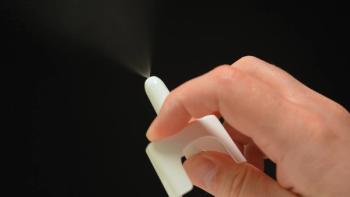
Improving Opioid Use Disorder Treatment After Emergency Department Visits
Key Takeaways
- Emergency departments are pivotal in providing access to addiction treatment, especially for those not receiving care in traditional settings.
- The study involved 1,994 patients across 29 sites, comparing traditional and extended-release buprenorphine treatments.
A Yale study reveals how racial and ethnic factors impact access to opioid use disorder treatment in emergency departments, highlighting barriers and solutions.
A new study from Yale School of Medicine explores how racial and ethnic factors influence access to opioid use disorder (OUD) treatment after emergency department (ED) visits.
The research, published in
"The emergency department truly serves as a hub for access to life-saving addiction treatment, particularly for individuals who may not receive care through more traditional settings, such as in a doctor’s office," says lead author Edouard Coupet Jr, MD, assistant professor of emergency medicine at Yale School of Medicine (YSM) and core faculty in the Yale Program of Addiction Medicine.
The patients included in the study were part of a large multi-site trial funded by the National Institute on Drug Abuse’s (NIDA's) Clinical Trial Network. The study enrolled 1,994 patients with OUD in 29 sites across the United States. It compared the effects that two treatments—a traditional under-the-tongue form of buprenorphine and a new seven-day, extended-release injectable formulation—had on patient engagement in addiction treatment at seven and 30 days.
Researchers interviewed 57 participants with OUD who received care at one of eight ED sites across the United States.
The findings revealed that common barriers to OUD treatment engagement among all participants included stigma, structural barriers, challenges navigating the health system, co-occurring substance use, and mental health issues. Structural barriers may have included unreliable transportation or lack of insurance.
Black and Hispanic participants cited experiences of racism and deep-seated mistrust of the health care system. Meanwhile, both Hispanic and white individuals expressed concerns about potential side effects of buprenorphine, an opioid use disorder treatment.
Despite these challenges, the study highlighted important facilitators to treatment engagement from the ED. These included positive experiences with ED staff, consistent access to health care, and strong social support from family and loved ones.
“We’ve undoubtedly made progress in addressing the opioid crisis," says co-author and CTN 0099 ED INNOVATION lead investigator Gail D’Onofrio, MD, MS, Albert E. Kent Professor of Emergency Medicine and professor of medicine core addiction at YSM. “Our findings highlight ways to sustain that progress. By reducing barriers such as navigating the health care system and leveraging services like social support, we can make addiction treatment more accessible for everyone.”
The
Newsletter
Receive trusted psychiatric news, expert analysis, and clinical insights — subscribe today to support your practice and your patients.







